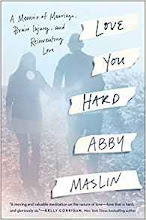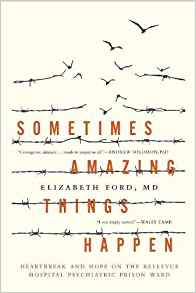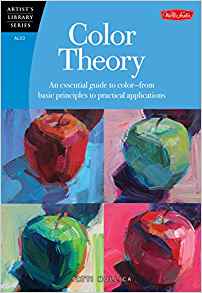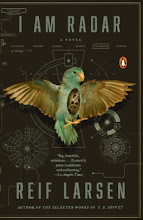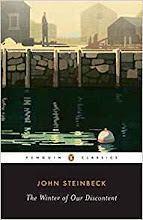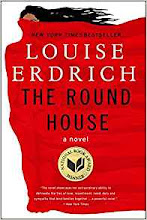We are workshopping my story. The others want to know more about the murder. They want to know why I ended the story without explaining how it happened. They say the motive for the murder is very weak, if there is even a motive that is evident.
The problem is: there is no murder.
Even when I explain that I wrote everything that happened and did not keep anything from the reader, even when I remind them that the other character left the premises while the woman who dies is still walking and talking to herself, they are not persuaded. Even the instructor says the story has the potential to be expanded so that the murder can be explored further.
She wasn't murdered! I should know - I'm the one who wrote the story.
They remain unconvinced.
He didn't do it! In fact, no one did. She wasn't killed! The only mystery is how you people could think she was!
This powerfully illustrates a wonderful phenomenon in fiction (even while it may frustrate the writer in some cases): people bring to their reading of a story all kinds of things, things the writer - and even the reader - cannot control, things that influence what one sees and how one experiences a story. And this accounts for people's wildly different reactions to the same story.
My writer friend Mary tells an anecdote reminiscent of the three blind men describing an elephant but which sounds more like a three-guys-in-a-bar joke. Her writing group was discussing a story she had written. The feminist tells her, "Your story is really about the disenfranchisement of women in a male-dominated world." The Russian guy says, "This is a story of alienation, of immigration, and assimilation into an unfamiliar society!" The transgender woman says, "You've really written a story about gender identity. It's a transgender story!"
I had a very strong reaction to another story in the same workshop where we talked about my non-murder. David had written a story about a man on a quest the day of his father's funeral. I felt absolutely positive that the story was really about the main character's love for his father, despite the fact that he never mentioned it or alluded to it and in fact, said things that indicated feelings to the contrary. I praised David's amazing skill in writing a story that was so clearly about something completely unsaid. I was so sure and so moved by this that I completely embarrassed myself by nearly breaking down while talking about it in class.
It strikes me now that maybe the story wasn't about that at all, that maybe that was not David's intention when he wrote it. Maybe all of that was unsaid in the story because that wasn't how David wrote it. Maybe I was deeply moved because of what I brought to the story. And maybe that's why no one else in the workshop reacted the way I did.
It's fascinating how all of our personal issues - our fears, regrets, dreams, unfinished business, and tangled relational histories - feed into how we experience a story. It's wonderful how they can add dimension and depth to our reading.
The writer may never know how or why a particular work will take one reader's breath away, cause another to cry, and another still to move on, unaffected. All one can do is write from the heart and trust the reader with it. Even when they must be left to deal with the murder of someone who wasn't killed.
Sunday, August 18, 2013
Sunday, August 11, 2013
He's Part of Me
There is no getting past it. He is an indelible part of who I am. He is undeniably in my core, and I can feel his influence just about every day - both the bad parts I resent him for and the good parts I'm starting to appreciate. He'll never go away, though he is gone forever.
What I don't get, after more than fifty years of life, and coming up on the tenth anniversary of his death, is why I am still working out what it all means; what lessons I am supposed to have learned from my turbulent, icy relationship with him; what I could possibly hope to gain from the years - DECADES - of all the talks we never had, you know: those fabled father-son talks. Shouldn't I have processed all of it? Shouldn't I know by now? He was my father, for God's sake. What is there to figure out?
What I am starting to get, however, is that an awful lot of this processing is going on all around me. In fact, I'm starting to think it might be a universal thing. Not that every man has a difficult relationship with his father (at least, I hope not). Universal in the same way that knowing glances are exchanged about mother-daughter relationships.
I recently returned from my second Taos Summer Writers' Conference, and the story that I workshopped was not the only one with a missing father element. In fact, the absent father's influence was the main point of another writer's story, even taking place the day of the funeral. Two out of the three readings assigned by Wally Lamb, the workshop's facilitator, had at their central core the relationship (tender and loving in one, difficult and tension-filled in the other) between the narrator and his father. And the Wally Lamb novel I was reading at the time portrayed a very stormy stepfather relationship.
Part of this Great Working Out has simply to do with the fact that the most influential people in our lives are those who raised us, for better or worse. When a man's mother dies, there is naturally (I imagine) a similar review of their shared history and what it means; however, women who were mothers of baby boomers had clearly-defined roles, both domestically and emotionally, so the mother-son relationship was pretty stable (Oedipal complexes aside).
Men, on the other hand, were struggling to figure out their place in the family as women's expectations began changing. And older fathers were hands-off when it came to child-rearing. With their traditional roles limited to breadwinner and disciplinarian, they didn't have to concern themselves with relating to their children if they weren't punishing them for something. Either way, it's no wonder they didn't know how to be fathers, or even know there was a way to be. Many believed that being a father meant providing for one's family, simple as that.
This left a whole lot of men to glean fatherly lessons by osmosis, I guess.
But it's also why I view my own paternal relationship through a softer lens now. My dad just didn't know any other way to be. He sure didn't struggle with it. There were no books about it back then, and men of his generation didn't seek help, anyway. When I consider how little about life I myself really know or understand, even after half a century, I can't really fault him for the job he did as a father to me.
I'm not done yet. There could be more re-hashing ahead (though, thankfully, it seems to be dwindling). More revising of previous conclusions. More letting go. The Great Working Out continues, and it's all good. There is no deadline.
What I don't get, after more than fifty years of life, and coming up on the tenth anniversary of his death, is why I am still working out what it all means; what lessons I am supposed to have learned from my turbulent, icy relationship with him; what I could possibly hope to gain from the years - DECADES - of all the talks we never had, you know: those fabled father-son talks. Shouldn't I have processed all of it? Shouldn't I know by now? He was my father, for God's sake. What is there to figure out?
What I am starting to get, however, is that an awful lot of this processing is going on all around me. In fact, I'm starting to think it might be a universal thing. Not that every man has a difficult relationship with his father (at least, I hope not). Universal in the same way that knowing glances are exchanged about mother-daughter relationships.
I recently returned from my second Taos Summer Writers' Conference, and the story that I workshopped was not the only one with a missing father element. In fact, the absent father's influence was the main point of another writer's story, even taking place the day of the funeral. Two out of the three readings assigned by Wally Lamb, the workshop's facilitator, had at their central core the relationship (tender and loving in one, difficult and tension-filled in the other) between the narrator and his father. And the Wally Lamb novel I was reading at the time portrayed a very stormy stepfather relationship.
Part of this Great Working Out has simply to do with the fact that the most influential people in our lives are those who raised us, for better or worse. When a man's mother dies, there is naturally (I imagine) a similar review of their shared history and what it means; however, women who were mothers of baby boomers had clearly-defined roles, both domestically and emotionally, so the mother-son relationship was pretty stable (Oedipal complexes aside).
Men, on the other hand, were struggling to figure out their place in the family as women's expectations began changing. And older fathers were hands-off when it came to child-rearing. With their traditional roles limited to breadwinner and disciplinarian, they didn't have to concern themselves with relating to their children if they weren't punishing them for something. Either way, it's no wonder they didn't know how to be fathers, or even know there was a way to be. Many believed that being a father meant providing for one's family, simple as that.
This left a whole lot of men to glean fatherly lessons by osmosis, I guess.
But it's also why I view my own paternal relationship through a softer lens now. My dad just didn't know any other way to be. He sure didn't struggle with it. There were no books about it back then, and men of his generation didn't seek help, anyway. When I consider how little about life I myself really know or understand, even after half a century, I can't really fault him for the job he did as a father to me.
I'm not done yet. There could be more re-hashing ahead (though, thankfully, it seems to be dwindling). More revising of previous conclusions. More letting go. The Great Working Out continues, and it's all good. There is no deadline.
Subscribe to:
Posts (Atom)

